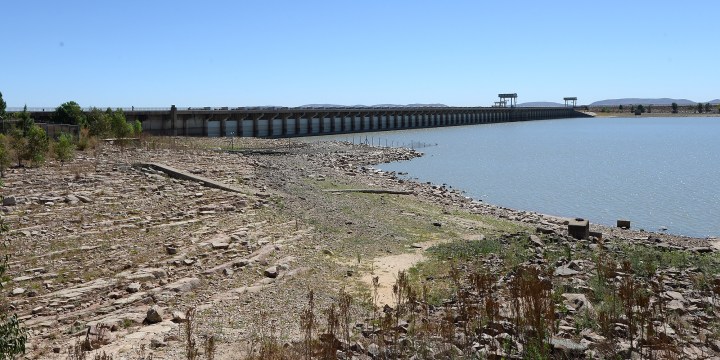Op-Ed
Flooding and water wastage: Apartheid-era planning and a lack of stormwater management to blame

Why do the Vaal Dam water levels remain low even after heavy rains? And why do so many areas face flooding almost every time it rains?
Flooding in certain areas in the country has given the impression that sufficient water is gained during heavy rainfalls. But in fact, the rain has minimal impact. In Gauteng, it is partly because the Vaal Dam is serviced by dams in the Free State, Lesotho, KwaZulu-Natal and Mpumalanga. This renders the Gauteng contribution insignificant, even during heavy rainfall seasons.
The geomorphology of the province is such that the rain that falls north of Sandton flows in a north-eastern direction, towards the Hartbeespoort Dam, through the Crocodile River and towards the Limpopo River. Similarly, the north-eastern part of Gauteng, the east of Cullinan, has the rainwater flowing towards the Letaba and upper-Olifants catchment area.
Understanding Gauteng’s geomorphology is the right step towards building effective stormwater management systems. However, this will require large investments to be made. The current system is a result of apartheid spatial planning and continues to put the lives of citizens in danger. There are no drainage systems in place for flooding conditions, which are becoming frequent due to climate change.
Due to apartheid spatial planning, Centurion’s infrastructure has been built on wetland and flood plains around the Hennops River. In the case of Mamelodi, the land has been altered to such an extent that it has no ability to hold the water. The area was allocated to black people by the apartheid government, which deliberately built the houses so close to the Edendalespruit River, it altered the riparian zone i.e. the areas adjacent to the river. The riparian buffer zone should not be interfered with in order to reduce the risk of flooding. The natural assimilation capacity of the natural water resources has been disrupted to such great lengths that it cannot manage the extra influx produced by heavy rains. Citizens alongside the Jukskei River face the same effect. These areas both remain vulnerable to flooding, with all the corresponding risks of disease and homes being washed away.
South Africa needs rainwater harvesting strategies for industry and urban households. In a water-scarce country, there must be measures put in place that will ensure excess water is stored, or directed to reservoirs (like the Vaal Dam). Larger investments must be made into research and development of hydro-technologies for rainwater, and greywater harvesting. It is too late to rehouse the citizens whose homes are built on floodplains. We can’t relocate all of Centurion, for example. But what our government can do is to put systems in place for better stormwater management.
One cannot run away from the fact that climate change is a reality and that natural disasters are in our future. The environment is a social and political problem. The increases in temperature, natural disasters and seasonal changes impact poor people the most. The National Development Plan’s Chapter 5 calls for a transition to a low-carbon economy that prioritises the working class. The minority cannot continue to cause environmental impacts that have a severe bearing on the majority. DM
Anelile Gibixego is the assistant researcher in the Faculty of Knowledge Economy and Scientific Advancement at the Mapungubwe Institute for Strategic Reflection (MISTRA).





















 Become an Insider
Become an Insider